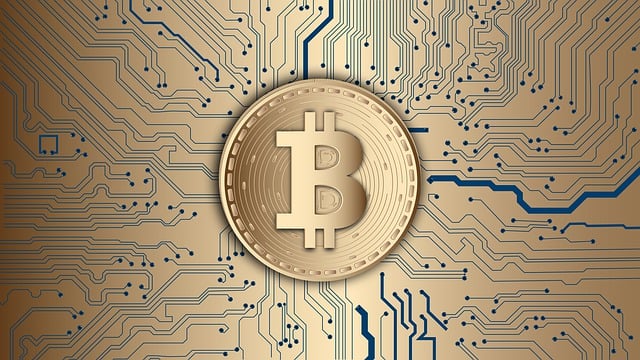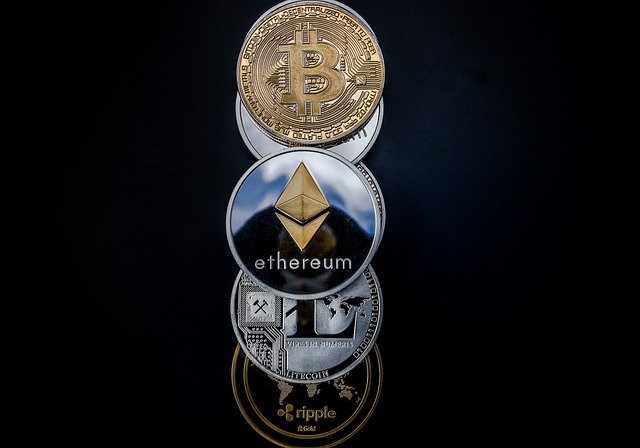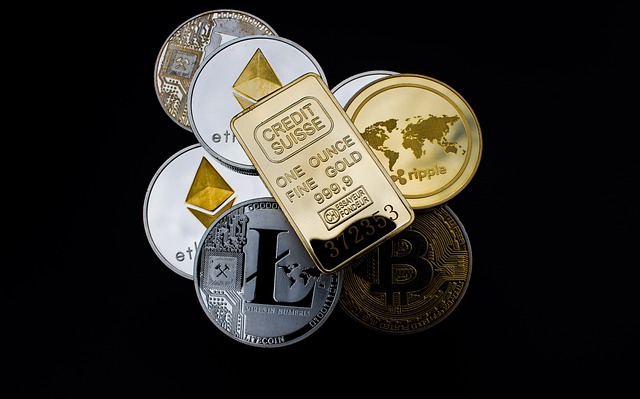Geopolitical tensions significantly influence cryptocurrency markets by introducing uncertainty and driving regulatory changes worldwide. Events like trade disputes, sanctions, or political instability can trigger price volatility as investors shift towards safe-haven assets. Cryptocurrencies, initially perceived as immune to traditional forces, become susceptible to these tensions, leading to dramatic price fluctuations during global unrest. To navigate this dynamic environment, investors must adopt adaptable strategies, explore innovative solutions like DeFi, and diversify crypto investments globally for resilience against geopolitical fluctuations.
In an era where geopolitics shapes global markets, understanding the vulnerability of cryptocurrency to these dynamics is paramount. This article delves into how geopolitical tensions impact on crypto, examining historical instances where market unrest mirrored global unrest. We explore the ripple effects on investors and the broader ecosystem, while also investigating potential solutions for enhanced resilience in a politically charged landscape.
- Understanding Crypto's Vulnerability to Geopolitical Tensions
- Historical Examples: When Crypto Markets Reflect Global Unrest
- The Impact on Investors and the Crypto Ecosystem
- Exploring Solutions and Future Resilience in a Political Landscape
Understanding Crypto's Vulnerability to Geopolitical Tensions

The world of cryptocurrency, while innovative and decentralized, is not immune to the effects of geopolitics. Geopolitical tensions between countries can significantly impact the crypto market due to its global nature. When political or economic conflicts arise, they often lead to increased uncertainty in financial markets, including cryptocurrencies. Investors tend to move towards safe-haven assets during such times, which can cause a shift in crypto’s price dynamics. For instance, events like international trade disputes, sanctions, or even political instability in major crypto-adopting nations can create volatility and prompt investors to reevaluate their digital asset holdings.
These tensions can also result in regulatory changes across different jurisdictions, affecting the way cryptocurrencies are perceived and used. As countries respond to these global events, new policies may emerge, impacting the availability, liquidity, or overall accessibility of certain crypto assets. The interconnectedness of global economies and the borderless nature of cryptocurrency make it a vulnerable target for geopolitical maneuvers, creating an ever-changing landscape for investors and enthusiasts alike.
Historical Examples: When Crypto Markets Reflect Global Unrest

During periods of global unrest, cryptocurrency markets often mirror and amplify the geopolitical tensions unfolding in the real world. Historically, we’ve seen this play out during significant events like international conflicts, political upturns, and economic crises. For instance, during the 2014-2015 Ukrainian-Russian conflict, Bitcoin experienced a surge in value as investors sought refuge from traditional financial markets perceived as volatile. Similarly, the 2008 global financial crisis led to a boom in cryptocurrency adoption, with investors flocking to digital assets like Bitcoin and Ethereum as a hedge against fiat currency devaluation.
These historical examples underscore the inherent connection between geopolitics and crypto markets. As geopolitical tensions increase, so too often does the appeal of cryptocurrencies, which are seen as decentralized, borderless, and immune to the same regulatory and economic forces that govern traditional financial markets. However, this relationship isn’t without risks; sudden shifts in geopolitical landscapes can also lead to dramatic price drops as investors dump crypto assets for safer havens.
The Impact on Investors and the Crypto Ecosystem

The stability of cryptocurrencies is often closely tied to global economic and political conditions, with geopolitical tensions playing a significant role in shaping the crypto ecosystem. Events such as international conflicts or sanctions can instil uncertainty among investors, leading to volatile market behavior. This volatility affects both seasoned investors and newcomers, as the unpredictable nature of cryptocurrency prices can result in substantial gains or losses within short periods.
In times of heightened geopolitical tensions, investors may turn to cryptocurrencies as a haven asset, seeking refuge from traditional markets’ instability. However, this increased demand can also exacerbate price fluctuations, creating a challenging environment for long-term investment strategies. Moreover, regulatory changes and government interventions related to geopolitics can significantly impact the overall perception and adoption of cryptocurrencies, potentially hindering or advancing their integration into global financial systems.
Exploring Solutions and Future Resilience in a Political Landscape

In today’s political climate, with rising geopolitical tensions globally, the cryptocurrency market faces unique challenges. The unpredictable nature of international relations often leads to policy shifts and regulatory changes that can significantly impact digital assets. As a result, investors and enthusiasts must navigate an ever-changing environment, requiring adaptable strategies to ensure resilience in the face of these external factors.
Exploring innovative solutions is key to building future resistance against geopolitical fluctuations. Decentralized finance (DeFi) protocols, for instance, offer a level of autonomy that can mitigate risks associated with centralized authorities. Additionally, exploring crypto-geopolitical diversification strategies allows investors to spread their portfolios globally, reducing exposure to any single nation’s political landscape. These adaptive measures not only protect but also position the crypto space for potential growth in an ever-shifting geopolitical arena.
Geopolitical tensions have a significant impact on the volatility of cryptocurrency markets, as evidenced by historical examples during global unrest. These fluctuations pose challenges for investors and can disrupt the stability of the entire crypto ecosystem. However, exploring solutions and fostering resilience through regulatory clarity, enhanced security measures, and diverse investment strategies can help mitigate these risks. By understanding the intricate relationship between geopolitics and crypto, we can navigate a more stable future for this evolving digital asset class.
